Retro Replay Review
Gameplay
What Linus Bruckman Sees When His Eyes Are Closed introduces an innovative dual-screen concept on a single display, inspired by the Nintendo DS. You simultaneously play two distinct puzzles—Kami on the top half and DocMcVonSpaceBurger on the bottom—each unfolding in real time. Every move you make in one game is mirrored in the other, creating a richly layered challenge that demands both multitasking skills and strategic foresight.
(HEY YOU!! We hope you enjoy! We try not to run ads. So basically, this is a very expensive hobby running this site. Please consider joining us for updates, forums, and more. Network w/ us to make some cash or friends while retro gaming, and you can win some free retro games for posting. Okay, carry on 👍)
In Kami, you guide the spirit of a fallen samurai through cavernous ruins in search of the trapped goddess Izanami. Puzzle mechanics center on rearranging fragmented story tiles, manipulating switches, and leveraging color-coded axes to reshape the game world. Meanwhile, in DocMcVonSpaceBurger, you take on the role of Junior the alien, donned only in underpants, racing against time to serve customers the right fast-food capsules to save his father’s faltering empire.
The most compelling twist is the language barrier: your first run presents Kami entirely in Japanese, rendering its puzzles opaque until you complete the burger-side challenges. Only then is the text translated for a second, deeper playthrough. There are multiple endings depending on whether you fail both puzzles, solve one, or conquer both simultaneously, making each session feel consequential and rewarding.
Despite shared inputs, subtle tricks—like toggling switches that affect only one screen or rotating axes to isolate specific effects—grant you a measure of control. The interplay between the serene, deceit-based storytelling of Kami and the frenetic order-fulfillment in DocMcVonSpaceBurger keeps engagement high and prevents either half from feeling repetitive.
Graphics
The visual presentation of What Linus Bruckman Sees When His Eyes Are Closed is a study in contrasts. Kami exudes a minimalist oriental art style, with ink-brush backgrounds, subtle animations, and a haunting palette of muted reds, blacks, and whites. Characters and environment fragments flow seamlessly together, evoking traditional Japanese scroll painting brought to life.
On the flip side, DocMcVonSpaceBurger embraces a vibrant, cartoony aesthetic that feels straight out of a 90s Saturday morning cartoon. Bright primary colors, exaggerated character designs, and playful UI elements underscore the comedic tone of Junior’s fast-food hustle. This stark divergence in art direction makes it easy to distinguish each game at a glance, even while your brain toggles rapidly between them.
Both halves run smoothly, with crisp pixel art and responsive animations that enhance readability during high-pressure moments. Visual cues—such as color-coded puzzle fragments in Kami or flashing order icons in DocMcVonSpaceBurger—are clear and intuitive, minimizing frustration when the pace picks up. The split-screen layout is handled elegantly, with no visual clutter to detract from the core gameplay.
Story
At its heart, What Linus Bruckman Sees When His Eyes Are Closed weaves two very different narratives into a unified experience. Kami tells the tragic tale of a female samurai spirit seeking redemption for her fallen village. As you piece together the fragments of a deceitful storyline, the deeper tragedy of Izanami’s imprisonment unfolds, revealing layers of betrayal and sacrifice.
Conversely, DocMcVonSpaceBurger is pure, irreverent comedy. You play Junior, an alien who must navigate eccentric customers and bizarre burger preferences to keep his father’s fast-food chain afloat. The lighthearted tone and whimsical characters offer a welcome counterpoint to the somber atmosphere of the upper screen.
What ties these disparate threads together is the mirrored-action mechanic and the meta-narrative of discovering language. By solving burger puzzles first, you unlock the translation that makes Kami solvable—suggesting themes of communication, understanding, and interdependence. The multiple endings, from bittersweet to triumphant, ensure that your choices and performance carry real narrative weight.
Overall Experience
What Linus Bruckman Sees When His Eyes Are Closed is a singular adventure that demands patience, analytical thinking, and a love of unconventional puzzle design. The mirrored gameplay keeps you constantly on your toes, while the language-based lock-and-key mechanic adds an extra layer of discovery and replay value.
Although the initial learning curve can be steep—especially for players unaccustomed to split-screen puzzles—the payoff is substantial. Cracking both games simultaneously delivers a rush of satisfaction, and earning your place in the developer’s online hall of completion provides a motivating social touchpoint for completionists.
If you’re seeking a game that breaks the mold, challenges your multitasking abilities, and delivers two entirely different worlds in one package, this indie title is well worth exploring. Its relatively compact scope means you can feasibly master it in a few dedicated sessions, yet the depth of the puzzles and the variety of endings ensure that each playthrough feels fresh and meaningful.
Whether you’re drawn by the serene artistry of Kami, the zany pace of DocMcVonSpaceBurger, or simply the innovative dual-screen format, What Linus Bruckman Sees When His Eyes Are Closed offers a uniquely engrossing experience for puzzle enthusiasts and adventure fans alike.
 Retro Replay Retro Replay gaming reviews, news, emulation, geek stuff and more!
Retro Replay Retro Replay gaming reviews, news, emulation, geek stuff and more!

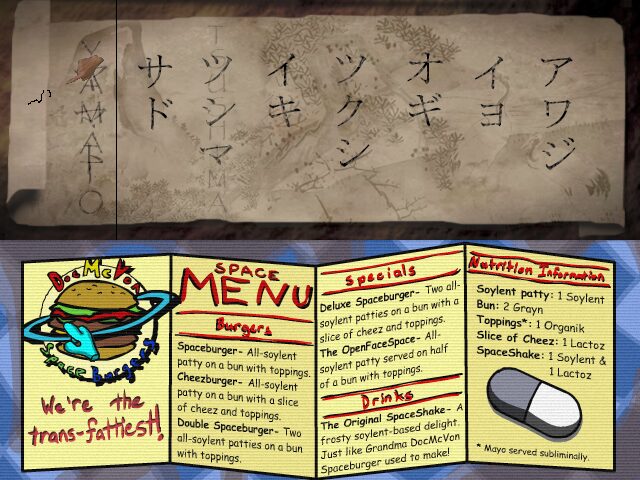
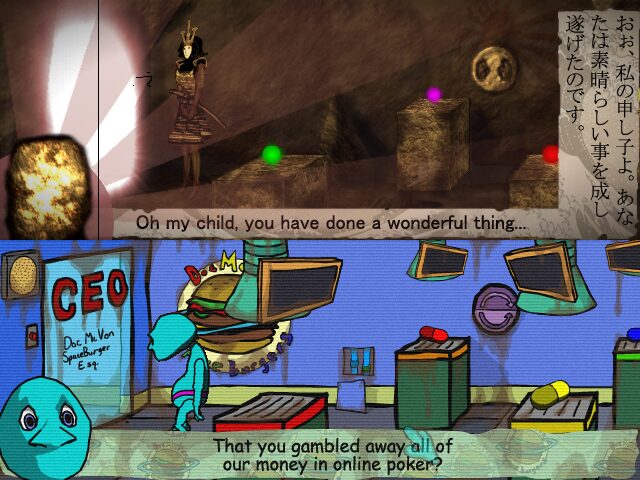


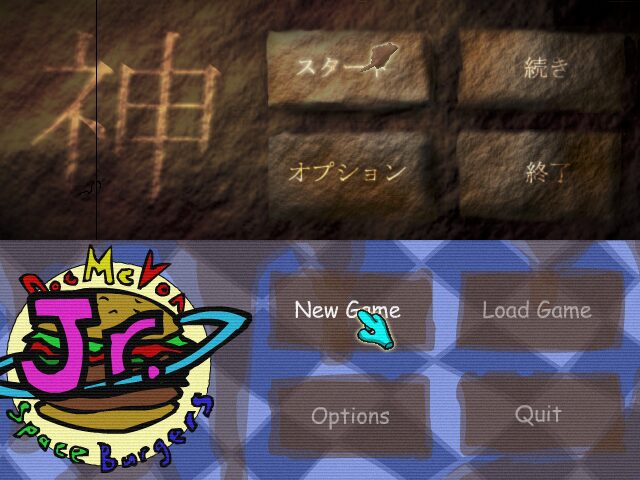
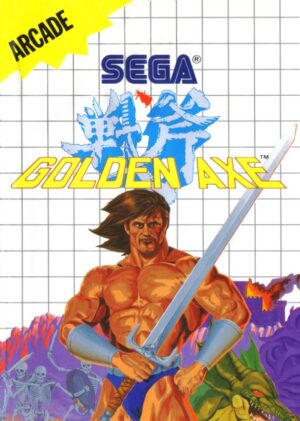
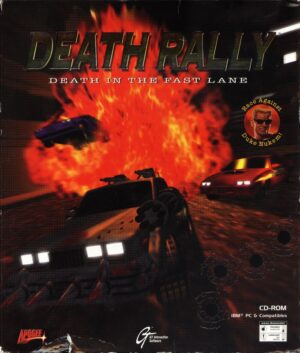

Reviews
There are no reviews yet.